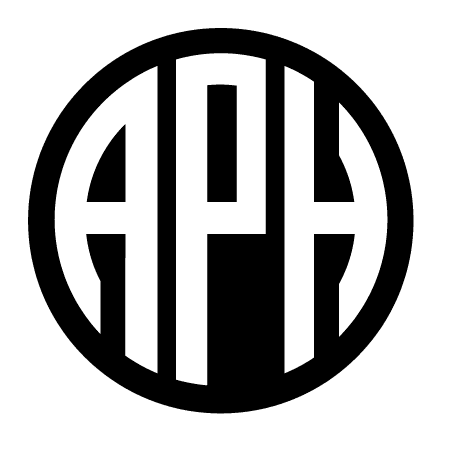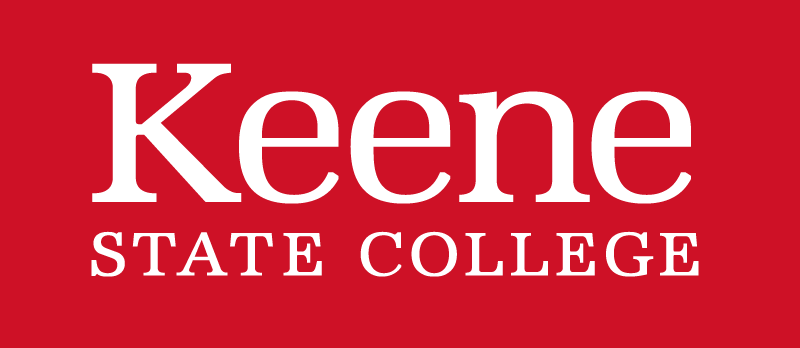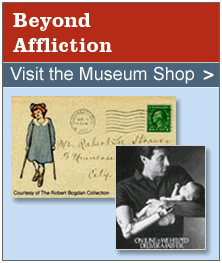About: Partners
Cultural Partners
Since the founding of the Disability History Museum in 2000, our cultural and education organization partners collaborate with us to secure grants, provide access to Library & Museum resources, develop programs—online and off, and promote this work to diverse communities and general public audiences. They provide crucial links to a broad range of archival collections, educational settings, teaching expertise, classroom laboratories, and public venues. We’ve worked collaboratively with broadcast media and outreach professionals, secondary school teachers, higher education faculty and their students, libraries, museums, and historical societies. Always our goals include integrating the history of disability communities across the lifespan, geographies, gender, race, class, and faiths while exploring broad themes in American History. Our current partners are engaged in helping the project transition into the future with sustainable economic and technical support. They include:
Center for Disability Studies, SUNY Buffalo
The Center for Disability Studies program at UB provides students and interested community members with broad exposure to innovative methodological and theoretical approaches to studying disability primarily in the humanities, with extensive collaboration in the social sciences, education, law, and the health sciences. SUNY Buffalo’s Disability Studies curricula and research agenda is driven by an interdisciplinary focus that seeks to reconstruct and evaluate the broad and diverse experiences of marginalized populations. The Center focuses on disability as a category of analysis and a lived embodiment and emphasizes the diverse experiences of disabled people in various times and locations. We examine how addressing disability in its full complexity can promote participation, self-determination, and equal citizenship of people with disabilities in society. The program is committed to studying the complex nature of disability as well as more pragmatic measures that can be taken to minimize the negative personal and social consequences of disability. A particular strength of the program is its incorporation of a diverse array of faculty, students, and community members. Together we explore issues that cut across impairment, clinical, cultural, ethical, legal, educational, and policy perspectives on disability. Director, Dr. Michael Rembis, Dept. of History
The Center for Disability Studies, New York University
The Center for Disability Studies at NYU promotes disability scholarship, artistry, and activism through public events, a monthly seminar, an undergraduate Disability Studies Minor and Disability Student Union, and co-direction of the Provostial Working Group addressing issues on campus of Disability, Infrastructure and Accessibility. The Center at NYU builds on ten years of activity of the NYU Council for the Study of Disability, funded by the Provost’s office since 2007. Faye Ginsburg (Anthropology/Faculty of Arts & Sciences) and Mara Mills (Media, Culture, and Communication/Steinhardt), who formerly directed the Council, are the current co-directors.
Emerging America
Emerging America provides professional development and online resources nationwide to nurture critical thinking about the American experience and its global context. We model successful strategies to access and analyze primary sources, investigate vital local stories, and improve student reading and writing about rich texts, images, maps, recordings, multimedia, and more. We have pioneered professional development and curriculum for grades K-12 about how to integrate the history of people with disabilities so that it benefits all students. Recognizing the many roles of people with disabilities across time can be especially powerful for students with disabilities. Students engage when they connect with history that reflects THEIR experiences. We are committed to helping teachers deepen inquiry and engagement with history by all students. This work has been generously supported by the Library of Congress Teaching with Primary Sources program since 2010. Emerging America is a program of the Collaborative for Educational Services, a Massachusetts-based a nonprofit, multi-service agency linking education, schools, families, and communities to opportunities and resources that advance student learning. It provides school districts and K-12 teachers with consultation, support services, classroom resources, and other tools. The Collaborative has helped to develop evaluation tools for assessing teacher and student experiences with the Disability History Museum's resources and programs.
Museum of the American Printing House for the Blind
Museum of the American Printing House for the Blind, soon to be The Dot Experience! The Museum at APH offers interactive exhibits that chronicle the history of the Braille code, the educational history of people who are blind and visually impaired, and how APH continues to contribute to the field today. We offer guided tours, special events, and online exhibits for families, students, educators, and more! https://sites.aph.org/museum/. APH is also the home of the M.C. Migel Library, which promotes research and education about the history of people who are blind or visually impaired. From manuscripts to published fiction, the APH Migel Library contains one of the largest known collections of non-medical materials related to blindness and visual impairment in the United States.
Keene State College: Dept of History, Program in Archives:
Founded in 1909, Keene State College is a public liberal arts college in Keene, New Hampshire, and is part of the University System of New Hampshire. Started as a teacher’s college, Keene State has a well-established track record accommodating students with disabilities. The Chair of the History Department, Dr. Graham Warder, worked on cataloging materials for the DHM’s Library and creating the DHM’s educational materials. His students helped with those efforts. Keene State and the DHM, together with a broad group of educators, secured an NEH Grant called “Helen Keller & Her Times.” The resulting curriculum materials were tested and piloted offline and are now available on the DHM site. In collaboration with Emerging America’s Richard Cairn, Dr. Warder also helped create the “Reform to Civil Rights” disability curriculum which became publicly available in 2023.
Past Collaborators
Newton North High School, Newton, MA
With funds provided by the John W. Alden Trust, the faculty, professional staff, student advisers, administrators, and parents at Newton North High School helped develop and implement high school level curriculum resources tied to Disability History Museum exhibits.
Center on Human Policy, Law and Disability Studies, Syracuse University
The Center on Human Policy, Law and Disability Studies at Syracuse University is a disability policy and research institute. Syracuse University has a national reputation as a leader in disability-related fields and has demonstrated a long commitment to Special Education and Disability Studies.
Alaska Department of Labor/Parents Inc.
With funding f rom the National Institute on Disability and Rehabilitation Research (NIDRR), the Alaska Department of Labor's Division of Vocational Rehabilitation (AK DOL) and Parents Inc. are the initial sponsors of the Doers & Deeds curriculum project. Doers & Deeds is an innovative museum exhibition and education program that will integrate disability perspectives into schools in Alaska and across the country. Parents Inc. is an advocacy group for families of children with disabilities based in Anchorage, AK.











